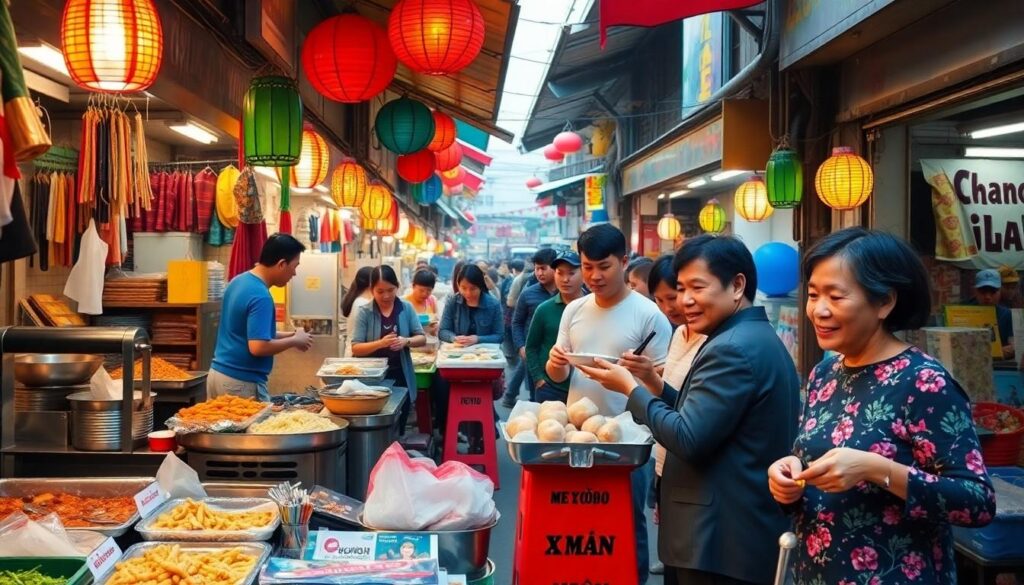Ever wondered what makes Vietnamese humor so unique? Vietnamese puns (called “dùng chơi chữ” in Vietnamese) offer a fascinating glimpse into the country’s linguistic playfulness and cultural identity. These witty wordplays leverage the language’s tonal nature and homonyms to create clever jokes that often leave foreigners puzzled but locals in stitches.
We’ve compiled the most entertaining Vietnamese puns that showcase the beautiful complexity of this Southeast Asian language. From simple word substitutions to elaborate linguistic acrobatics, these jokes demonstrate why humor often gets lost in translation. Whether you’re learning Vietnamese or simply appreciate language-based humor, you’ll discover why these puns are an essential part of Vietnamese communication and cultural expression.
The Art of Vietnamese Wordplay: Understanding Pun Culture
Vietnamese pun culture, or “dùng chơi chữ,” represents a sophisticated form of linguistic creativity that’s deeply embedded in daily communication. The tonal nature of Vietnamese creates fertile ground for wordplay, with six distinct tones allowing for multiple interpretations of similar-sounding words. Native speakers naturally incorporate these puns into everyday conversations, often as a way to inject humor or demonstrate verbal dexterity.
Understanding Vietnamese puns requires familiarity with both the language’s structural elements and cultural context. Many Vietnamese jokes rely on homonyms—words that sound identical but have different meanings—which are abundant in the language due to its monosyllabic nature. For example, the word “ma” can mean ghost, mother, cheek, or tomb depending on the tone used, creating countless opportunities for clever wordplay.
Regional dialects further enrich Vietnamese pun culture, as words pronounced differently across the country’s regions can generate even more possibilities for playful misunderstandings. Northern, Central, and Southern Vietnamese speakers often joke about these pronunciation differences, creating a unique subset of dialect-based humor that strengthens regional identity while fostering national unity through shared laughter.
Social media has dramatically expanded the reach of Vietnamese puns, with memes and viral content often centered around clever wordplay that resonates with younger generations. These digital puns frequently combine traditional linguistic jokes with contemporary references, keeping the art form vibrant and evolving. Popular platforms like Facebook and TikTok now serve as repositories for Vietnamese pun culture, where creative wordplay garners millions of views and shares.
Historical context also shapes Vietnamese wordplay, with some puns dating back centuries and referencing traditional folklore or literary classics. These historical puns often carry deeper meanings and require cultural knowledge to fully appreciate. The longevity of certain Vietnamese puns demonstrates their importance as vehicles for preserving cultural heritage while allowing for modern reinterpretation.
10 Hilarious Food-Related Vietnamese Puns You Need to Know
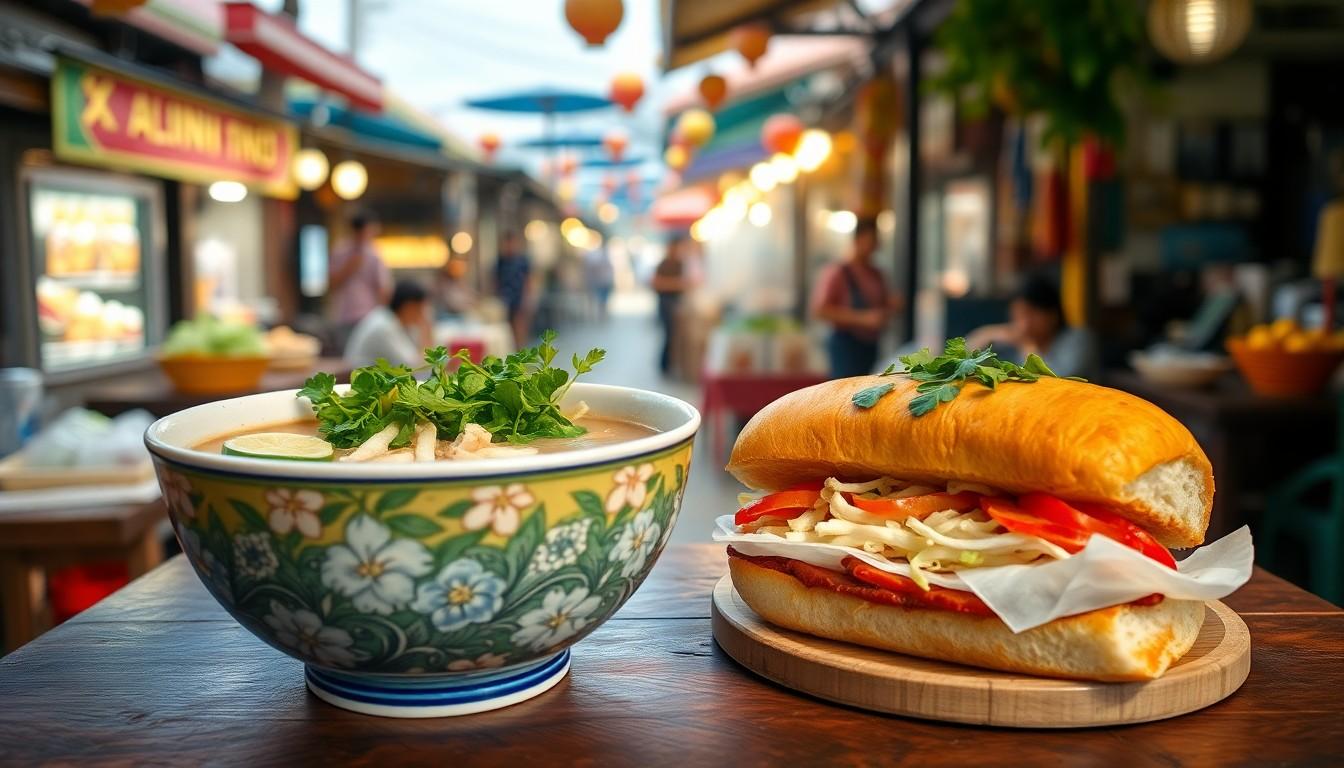
Phở Puns That Will Have You Slurping With Laughter
Phở, Vietnam’s iconic noodle soup, creates the perfect broth for wordplay. “Why did the phở get promoted? It was always on the broth of success!” This clever play on “broth” versus “brink” showcases the creative potential of food-based humor. You’ll find yourself “phở-lling in love” with these puns that blend English and Vietnamese food terminology. Stressed out after a long day? Remember to “phở-get about your worries” with a steaming bowl of comfort. Chefs who prepare this beloved dish often stay “zen” because they’ve found “inner peaceness” in every bowl they create. When making friends with other dishes, phở knows exactly how to “toss some jokes around” to break the ice with even the most serious salad. Next time you’re enjoying this aromatic soup, remember what phở says to the soup spoon: “Stir things up a little!”
Bánh Mì Wordplay That Takes The Sandwich
Bánh mì, Vietnam’s famous sandwich, offers plenty of opportunities for clever wordplay even though having fewer dedicated puns in our collection. “Keep calm and eat bánh mì” might seem like a simple phrase, but it perfectly captures both the cultural significance and casual humor surrounding this beloved street food. The sandwich’s versatility mirrors the versatility of Vietnamese humor itself. Bánh mì creates linguistic opportunities when paired with other Vietnamese food terms, allowing for creative expressions that celebrate this perfect handheld meal. Food vendors across Vietnam often use bánh mì puns on their signs and menus to attract customers with humor that resonates with locals while intriguing tourists. These wordplays showcase how even simple food items hold cultural significance in Vietnamese communication, making the humble sandwich a vehicle for both flavor and humor.
8 Vietnamese Name Puns That Locals Love
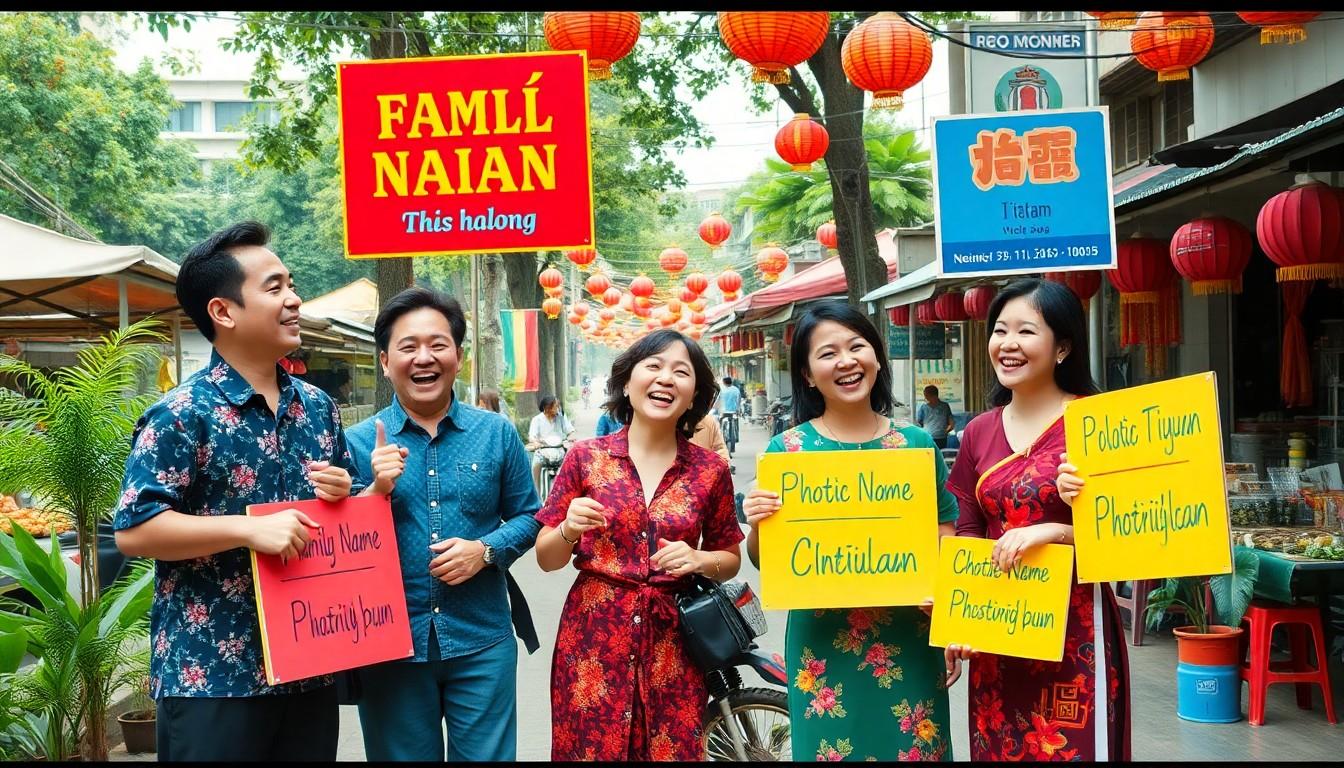
Vietnamese names offer fertile ground for creative wordplay, with locals often sharing these humorous puns in casual conversations and on social media. Names in Vietnamese carry meaning, making them perfect candidates for clever jokes that showcase the language’s playful nature.
Family Name Wordplay
Vietnamese surname puns frequently center around the country’s most common family name, Nguyen. On TikTok and other social platforms, jokes about “Nguyen” have gained massive popularity, often playing on its ubiquity and pronunciation challenges for non-Vietnamese speakers. Many locals enjoy the wordplay between surnames and everyday words, creating unexpected humor. For instance, the surname “Trần” (meaning “naked” or “bare”) can be used in puns like “Trần như Nhộng” (Tran like a pupa), creating a humorous double meaning that locals instantly recognize. Vietnamese comedians frequently incorporate these family name puns into their routines, using the cultural significance of surnames to connect with audiences.
First Name Funny Business
Vietnamese first names present even more opportunities for puns due to their meaningful nature. Names like “Cưng” or “Cục cưng” (meaning “darling” or “cute”) can be used in playful contexts that highlight their endearing qualities. “Tình yêu” (meaning “love”) serves as both a name and an emotional expression, creating natural wordplay opportunities in conversations. Humorous names such as “Bùi như Khoai” play on the surname Bùi while making a potato reference, as “khoai” means potato in Vietnamese. “Lê hai Chân” (Le with two legs) demonstrates how Vietnamese speakers creatively combine ordinary words with names to form unexpected jokes. Even simple names like “Mèo” (cat) can spark entertaining conversations when used in particular contexts or situations. These first name puns reflect Vietnamese creativity and the linguistic playfulness that characterizes local humor.
7 Regional Vietnamese Puns: North vs. South Humor
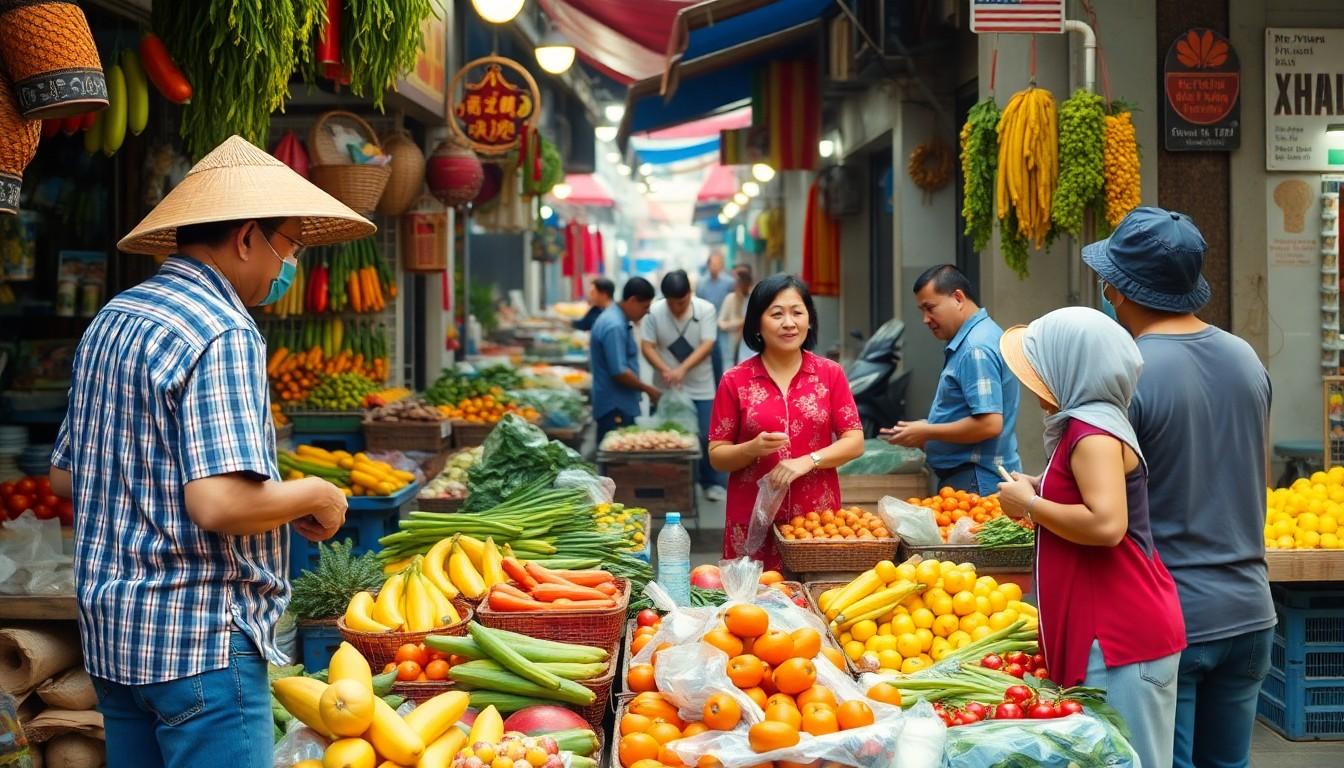
Vietnamese puns take on different flavors depending on the region, with the North and South developing distinctive styles that reflect their unique cultural backgrounds.
Hanoi Wordplay Specialties
Hanoi’s pun culture draws deeply from its rich historical and literary traditions. The influence of classical poets like Hồ Xuân Hương, often called the “queen of Nôm poetry,” has shaped the northern style of wordplay with its sophisticated and satirical undertones. Traditional Hanoi puns often feature complex linguistic gymnastics, utilizing the Vietnamese language’s polysemy where words like “say sưa” carry dual meanings of both “drunk” and “passionate.” Northern wordplay frequently incorporates references to historical events and cultural heritage, creating layered jokes that reward cultural knowledge. The satirical tradition in Hanoi dates back to the early 12th century, evident in woodblock reproductions and folk tales like those of Trang Quynh, continuing to influence the clever, often subtle humor preferred in the capital region.
Saigon’s Unique Pun Style
Saigon’s approach to wordplay reflects its cosmopolitan energy and diverse cultural influences. The southern pun style tends to be more contemporary and accessible, embracing the fast-paced urban lifestyle of Ho Chi Minh City. French colonization left a distinctive mark on southern Vietnamese humor, with satirical poets such as Nguyễn Khuyến and Tú Xương contributing to a uniquely southern style of wordplay during this period. Southern puns often play with word separation and combination techniques, creating humor by reinterpreting phrases like “Yên lặng” (peaceful) and “Hằng mong” (longing) in unexpected ways. The humor in Saigon typically feels more straightforward and immediate than its northern counterpart, though no less clever in its execution. Social context and daily urban experiences frequently appear in southern wordplay, making the humor relatable to the diverse population of Vietnam’s largest city.
5 Vietnamese Puns That Got Famous on Social Media
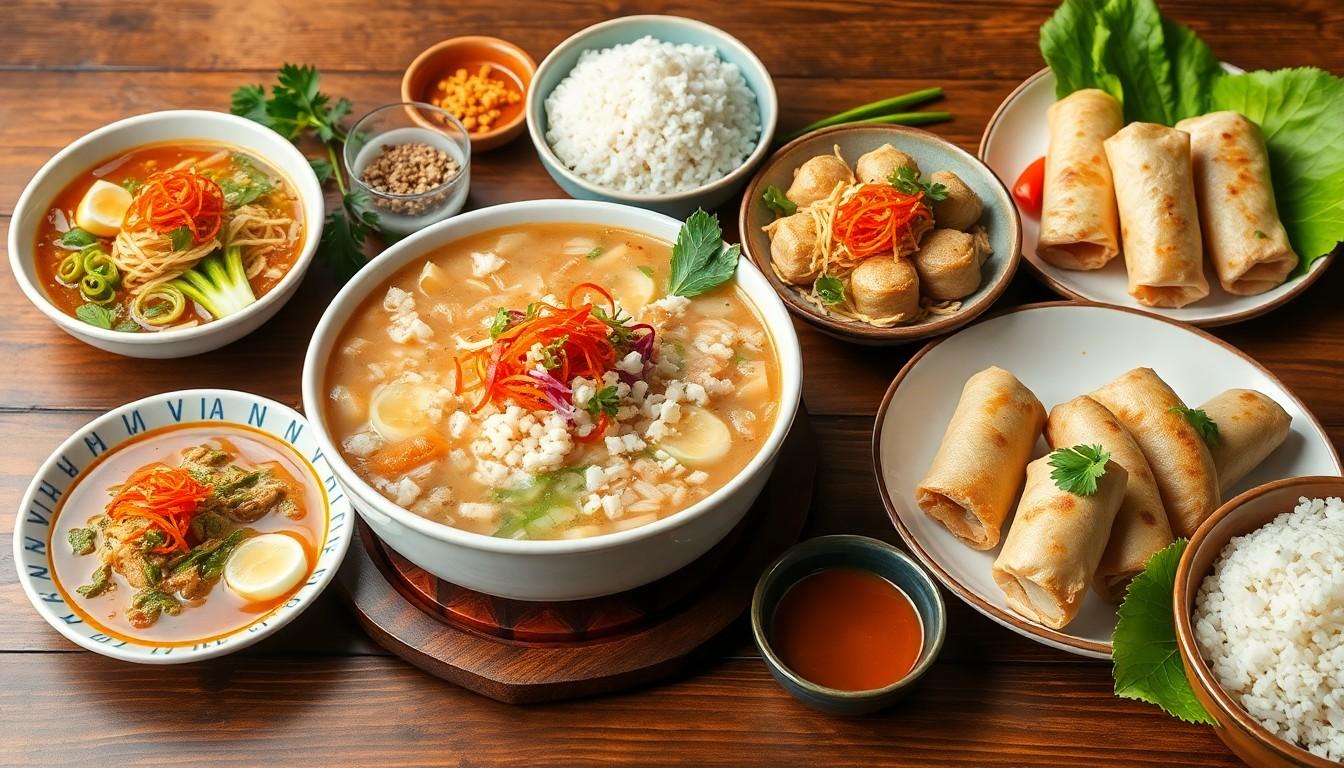
Social media has become a hotbed for Vietnamese puns, with clever wordplay spreading rapidly across platforms. These viral puns showcase the unique humor and creativity in Vietnamese culture while entertaining thousands of users. We’ve collected five of the most popular Vietnamese puns that gained important traction online:
- The Musical Noodle Joke: “Why did the noodle join a band? It wanted to be a ‘pasta’ star!” This culinary pun cleverly connects noodles with musical ambitions, creating a delightful play on words that resonated with food lovers and music enthusiasts alike.
- The Pho Comeback: “What did the pho say to the noodle? Pho-get about it!” This widely shared pun uses Vietnam’s iconic soup as its foundation, substituting “forget” with “pho-get” to create a memorable phrase that’s become a staple in Vietnamese humor circles.
- The Educated Spring Roll: “Why did the spring roll go to school? It wanted to be a little ‘wrap-sody’!” Combining the wrapped nature of spring rolls with a play on “rhapsody,” this pun cleverly marries food terminology with educational aspirations.
- The Chef’s Pastime: “What’s a Vietnamese chef’s favorite game? Pho-rtune telling!” Another pho-based pun that gained popularity by blending culinary references with mystical practices, creating a memorable joke that’s easily shareable.
- The Rice and Soup Relationship: “Why did the rice say to the soup? I’m feeling broth-erly!” This heartwarming food pun plays on the word “brotherly” while referencing soup broth, creating a humorous connection between two staple elements of Vietnamese cuisine.
These puns have spread rapidly across Facebook, TikTok, and Instagram, often accompanied by creative visuals or animations that enhance their appeal. Their popularity demonstrates how Vietnamese humor effectively leverages cultural references and linguistic creativity to connect people through laughter.
6 Traditional Vietnamese Proverbs With Punny Twists
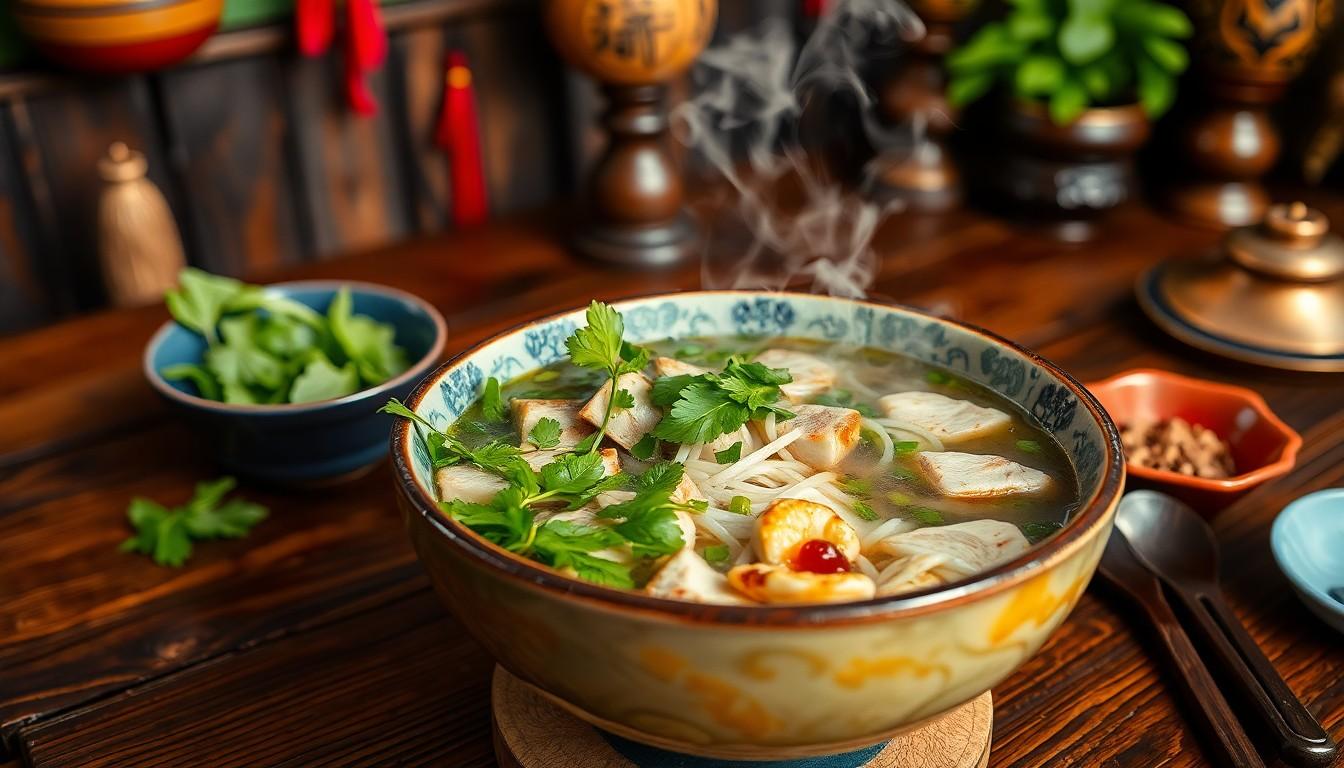
Vietnamese proverbs have long served as vessels of cultural wisdom, and when infused with clever wordplay, they take on a delightfully humorous dimension. We’ve collected six traditional Vietnamese proverbs reimagined with punny twists that showcase the playful side of Vietnamese language and culture.
1. “When There Is Pho, There Is a Way”
This punny twist transforms the classic proverb “Khi có chí thì nên” (When there is will, there is a way) into a culinary motivation. The original saying encourages perseverance, while this version playfully suggests that Vietnam’s beloved noodle soup can solve any problem you’re facing.
2. “One Good Noodle Is Not as Good as a Bowl of Pho”
Based on the traditional wisdom “Một con ngựa hay không bằng một đoàn ngựa tốt” (One good horse is not as good as a team of good horses), this foodie version emphasizes the collective perfection of a well-made pho bowl. All ingredients must work together to create the harmony of flavors that makes this dish so special.
3. “When Eating Pho, Remember Its Broth”
A clever adaptation of “Uống nước nhớ nguồn” (When drinking water, remember its source), this pun maintains the original’s message of gratitude while applying it to culinary appreciation. The depth of flavor in pho comes from its carefully simmered broth, just as our achievements often stem from those who came before us.
4. “A Straight Spring Roll Is Not Straight, a Bent Spring Roll Is Not Bent”
This punny version of “Cây ngay không Straight, cây gập không cong” plays with the philosophical concept that appearances can be deceiving. Spring rolls replace trees in this food-focused adaptation, creating a humorous reflection on perception versus reality in Vietnamese cuisine.
5. “Eat One Bowl of Pho, Learn One Recipe”
Transforming the wisdom of “Đi một ngày đàng, học một sàng khôn” (Traveling one day, learning one lesson), this culinary proverb suggests that every meal offers an opportunity for discovery. Each bowl of pho presents unique flavors that can teach us something new about Vietnamese cooking traditions.
6. “Love Pho as You Love Yourself”
Based on the compassionate teaching “Thương người như thể thương thân” (Love others as you love yourself), this lighthearted version elevates Vietnam’s national dish to something worthy of deep affection. The pun maintains the original’s message of care while redirecting it toward the nation’s beloved comfort food.
Using Vietnamese Puns to Learn the Language Faster
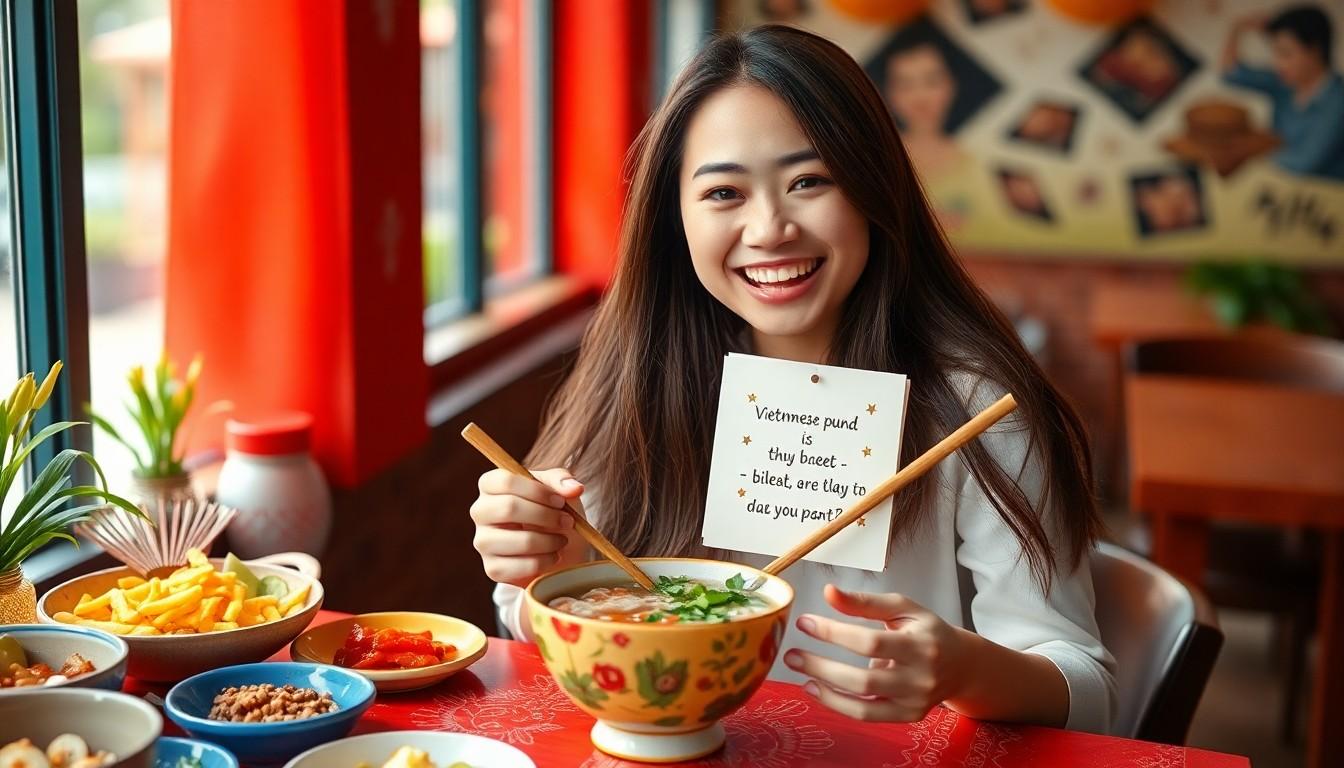
Playful Language Twists
Vietnamese puns offer a powerful learning tool through their clever wordplay and similar-sounding words. We’ve found that these playful language twists create memorable connections that help learners retain vocabulary more effectively than traditional memorization methods. Language students who incorporate puns into their practice often report better recall of challenging Vietnamese words and phrases. The humorous associations formed through puns create stronger neural pathways, making vocabulary stick in your memory with minimal effort.
Learning Through Humor
Laughter truly is the best teacher when it comes to language acquisition. We know that incorporating Vietnamese puns into your study routine transforms tedious vocabulary drills into enjoyable activities that boost engagement and motivation. Studies show that information learned with positive emotional associations is retained longer than dry facts. Vietnamese puns like “Why did the noodle cross the road? To pho-llow its dreams!” make learning fun while reinforcing pronunciation of important cultural words like “phở.”
Memory Aid
Vietnamese puns serve as exceptional memory aids that outperform traditional flashcards. We recommend creating your own puns with newly learned words to cement them in your memory. Your brain naturally remembers novel or humorous connections better than isolated vocabulary lists. Puns create these connections automatically by linking similar-sounding words with unexpected meanings, which is particularly valuable when learning Vietnamese with its six distinct tones and many homonyms.
Cultural Insight
Understanding Vietnamese puns opens windows into authentic cultural experiences that textbooks simply cannot provide. We emphasize that puns reveal how native speakers actually use the language in everyday contexts, providing crucial insights into Vietnamese humor and communication styles. Learning popular Vietnamese puns helps you recognize cultural references in conversations, television shows, and social media. This cultural fluency dramatically improves your ability to connect with native speakers beyond basic transactional exchanges.
How Vietnamese Puns Reflect Cultural Values and History
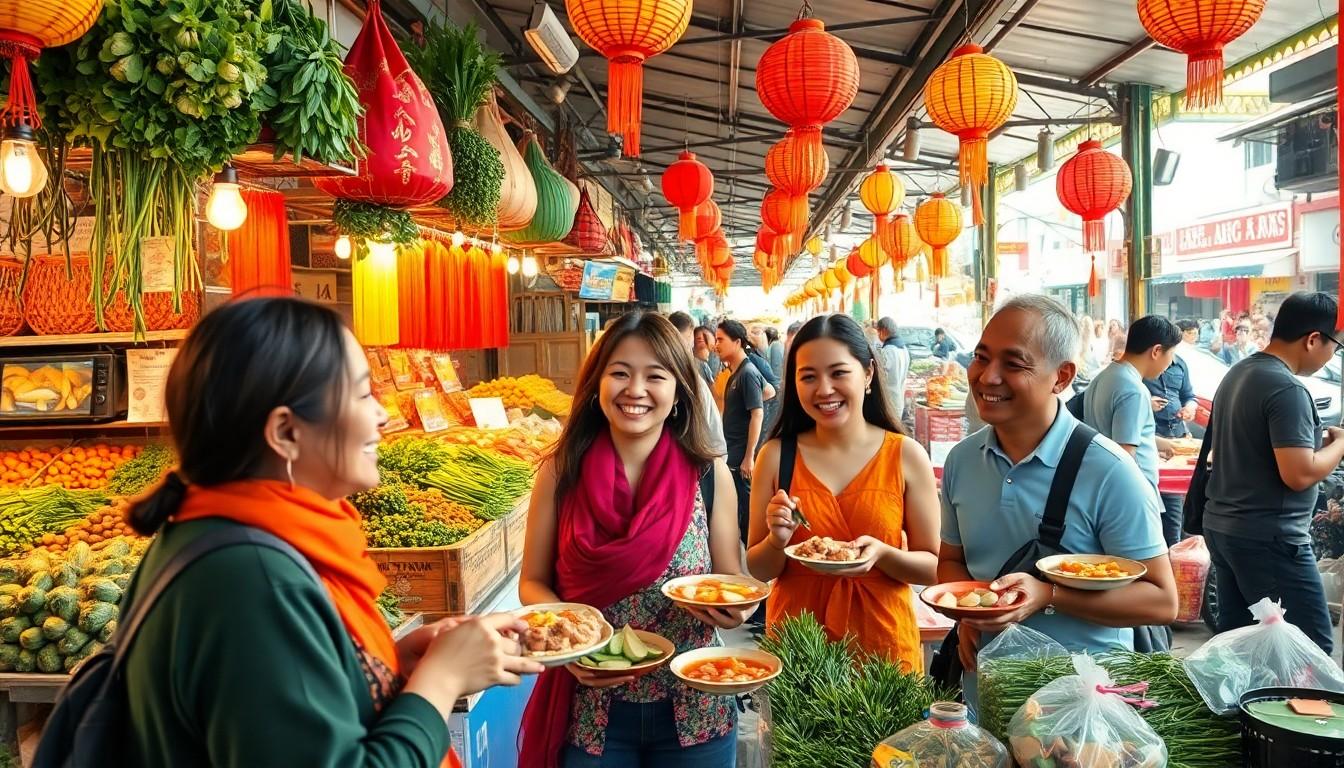
Use of Food and Cuisine
Vietnamese puns frequently showcase the central role of food in the culture through clever wordplay related to beloved dishes. Food references in these puns highlight the communal nature of meals and their significance in daily Vietnamese life. Popular examples include jokes about pho such as “Why did the pho get promoted? It was always on the broth of success!” Many Vietnamese families gather around shared meals, making food puns particularly relatable across generations. These culinary wordplays celebrate iconic dishes while reinforcing their cultural importance beyond mere sustenance.
Language and Wordplay
The tonal nature of Vietnamese creates a natural playground for puns that exploit similar-sounding words with different meanings. Vietnamese contains six distinct tones that can completely change a word’s meaning, providing rich opportunities for creative homophonic wordplay. For instance, puns often play with words like “cá” (fish) and “cà” (eggplant) that sound similar but carry different meanings. This linguistic creativity demonstrates the Vietnamese appreciation for verbal artistry and clever communication. Mastering these puns requires not just language fluency but cultural knowledge that connects speakers through shared understanding.
Cultural Icons and Traditions
Traditional festivals and celebrations frequently appear in Vietnamese puns, connecting humor to important cultural touchpoints. References to bánh chưng, the traditional rice cake eaten during Tết (Vietnamese New Year), appear in many wordplays that link this iconic food to festive occasions. Many puns incorporate seasonal traditions, ancestral practices, and ceremonial elements that remind listeners of their shared heritage. These tradition-based jokes serve as light-hearted cultural reinforcement, passing values between generations through humor rather than formal instruction.
Social and Community Values
Vietnamese puns often emphasize the importance of relationships and community bonds that form the foundation of society. Jokes like “What did the rice paper say to the dumpling? You’re my filling friend!” reflect the high value placed on social connections in Vietnamese culture. Many puns incorporate themes of loyalty, respect, and mutual support that mirror traditional Vietnamese social structures. The sharing of these puns in group settings further strengthens community ties, creating moments of collective enjoyment that reinforce social cohesion.
Humor and Resilience
The prevalence of optimistic puns in Vietnamese culture reveals a deep-rooted resilience fostered through centuries of historical challenges. Uplifting wordplays like “Phở-get your worries—just keep smiling!” demonstrate how humor serves as a coping mechanism during difficult times. Vietnamese people have historically used jokes to maintain positivity through foreign occupations, wars, and economic hardships. This tradition of finding humor amid struggle reflects the Vietnamese spirit of perseverance and ability to find joy in simple pleasures. The cultural tendency toward lighthearted wordplay provides emotional balance in a society that has weathered important historical turbulence.
Modern and Traditional Blend
Vietnamese puns beautifully illustrate how the culture adapts to changing times while honoring its roots through linguistic creativity. Contemporary puns often blend traditional elements with modern contexts, such as “Keep calm and eat bánh mì” or “Rice to the occasion!” Social media platforms have become vibrant spaces where classic Vietnamese wordplay finds new audiences through updated references. Young Vietnamese creators frequently incorporate traditional linguistic patterns into content that addresses current trends and technologies. This evolution of puns demonstrates the ever-changing nature of Vietnamese culture—preserving its essence while embracing change.
Mastering Vietnamese Puns: Tips for Language Learners
Vietnamese puns offer a window into the soul of Vietnam’s vibrant culture and linguistic industry. We’ve explored how these clever wordplays showcase the language’s tonal complexity while bringing people together through shared laughter.
Whether you’re exploring into food-based humor with phở jokes or appreciating the regional variations between Hanoi and Saigon’s punning styles, understanding these wordplays will enhance your connection to Vietnamese culture.
For language learners, puns aren’t just entertainment—they’re valuable learning tools that create memorable associations and cultural insights. So next time you encounter a Vietnamese pun, don’t just laugh—appreciate the cultural wisdom and linguistic creativity behind it.
Embrace the playful spirit of Vietnamese puns and you’ll find they’re the perfect ingredient for both language mastery and cultural appreciation.
Frequently Asked Questions
What are Vietnamese puns?
Vietnamese puns, known as “dùng chơi chữ,” are clever wordplays that take advantage of the language’s tonal nature and homonyms. These wordplays create jokes that are often amusing to locals but can be challenging for foreigners to understand. They’re deeply integrated into daily communication and reflect the sophisticated nature of Vietnamese humor.
Why are Vietnamese puns difficult to translate?
Vietnamese puns are difficult to translate because they rely heavily on the language’s six distinct tones, homonyms, and cultural context. The wordplay often depends on similar-sounding words having different meanings when pronounced with different tones. Regional dialect variations add another layer of complexity, making these puns uniquely Vietnamese and challenging to convey in other languages.
How do food-related puns feature in Vietnamese humor?
Food-related puns are extremely popular in Vietnamese humor, especially those involving iconic dishes like phở and bánh mì. Examples include “on the broth of success” and “Keep calm and eat bánh mì.” These puns not only entertain but also highlight the cultural significance of these dishes in Vietnamese society, blending culinary appreciation with linguistic creativity.
How do Vietnamese names become sources of puns?
Vietnamese names carry meanings that make them perfect for wordplay. Family names like “Nguyen” are used in puns that play on their ubiquity and pronunciation challenges. First names also feature in creative jokes, with examples like “Cưng” (darling) and “Bùi như Khoai” (Bùi like a potato) demonstrating how personal names become vehicles for humor in casual conversations and social media.
How do regional differences affect Vietnamese puns?
Northern and Southern regions have distinct pun styles. Hanoi’s puns tend to be more complex and rooted in historical and literary traditions, while Saigon’s humor is more contemporary and accessible, reflecting its cosmopolitan energy. These regional variations contribute to the richness of Vietnamese humor and showcase how cultural backgrounds shape wordplay differently across the country.
How have social media platforms transformed Vietnamese puns?
Social media platforms like Facebook and TikTok have revolutionized how Vietnamese puns are created and shared. They’ve popularized clever wordplay among younger generations and accelerated the spread of puns nationwide. Visual elements often accompany these puns online, enhancing their impact and helping them reach wider audiences, including Vietnamese diaspora communities worldwide.
How are traditional Vietnamese proverbs reimagined with puns?
Traditional proverbs are given humorous twists through punny adaptations, such as “When There Is Pho, There Is a Way” and “Love Pho as You Love Yourself.” These reimagined sayings blend cultural wisdom with culinary references, creating memorable expressions that maintain the essence of traditional values while adding a layer of contemporary humor that resonates with modern Vietnamese audiences.
Why are puns effective for learning Vietnamese?
Puns serve as effective language learning tools because they create memorable connections between similar-sounding words. They transform vocabulary practice into enjoyable activities, enhancing engagement and motivation. Puns outperform traditional flashcards by linking words with humorous associations, making them easier to remember. Additionally, understanding puns provides insights into authentic cultural contexts and improves overall fluency.
How do Vietnamese puns reflect cultural values?
Vietnamese puns reflect cultural values through references to food, communal meals, traditional festivals, and social relationships. They showcase the importance of community, resilience, and family bonds in Vietnamese society. The blend of modern references with traditional elements in contemporary puns illustrates how Vietnamese humor evolves while maintaining connections to cultural heritage and shared experiences.
Can foreigners appreciate Vietnamese puns?
Foreigners can appreciate Vietnamese puns with sufficient language knowledge and cultural context. While understanding the full linguistic nuance requires familiarity with tones and homonyms, language learners often find that puns provide engaging insights into Vietnamese culture. Many expats and students of Vietnamese report that mastering puns becomes a rewarding milestone in their language journey and deepens their cultural connection.

